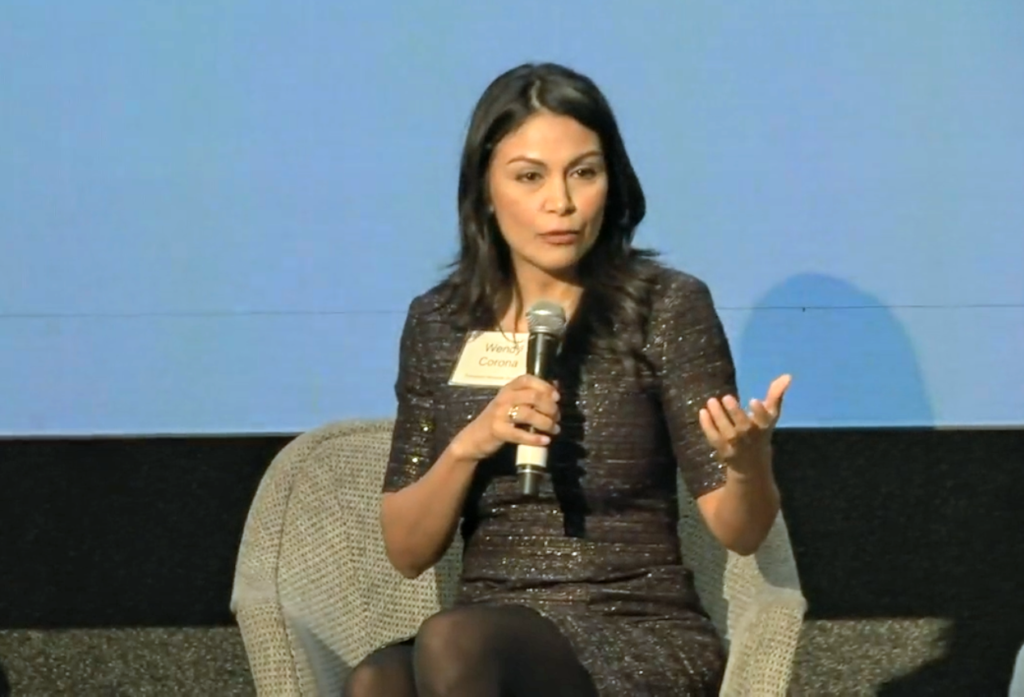Summit Spotlight: “The Power of Storytelling on the Westside” with Wendy Corona, WSB-TV News Anchor & Reporter
Wendy Corona, WSB-TV News Anchor and Reporter, joined the Feb. 21 Transform Westside Summit panel to discuss the importance of proper representation of marginalized communities in the media. The panel also included Christian Troy, an 11th grade Westside native and winner of AT&T’s Believe Atlanta video contest, and Benjamin Earley, storyteller, web developer, and Westside native and resident as moderator. Corona, an Emmy Award winner for her knack for storytelling, emphasizes the power and responsibility members of the media have to elevate stories which can lead to significant impacts in people’s lives—not just the typical crime stories we’re all accustomed to.
“Crime stories are around every corner,” says Corona. “I call those the reactive stories, where you go and you cover what happened—there was an accident or there was a shooting—and we can easily be reactive and cover those. But, the stories that I find value in personally, the stories that I want to tell, are stories about people. And, a lot of times in news organizations, those are the stories that get pushed back.”

Speaking about one of the most meaningful impacts she’s seen come from her work, Corona tells the story of coming across an African refugee in El Paso, TX and using the power of media to help reunite the woman with her long-lost family members in the Democratic Republic of the Congo.
“I was at a Taco Bell. You know, you get the authentic stuff when you’re in El Paso,” Corona says jokingly. “And, this woman walked in, just in this grand, beautiful, garb…traditional-like African clothing, and with the headdress and the whole bit. I remember she was wearing purple.” Corona continues, “when someone stands out like that, you know there’s a story there.”
Reflecting on having introduced herself to the woman, Corona says, “‘you look absolutely beautiful. What is your name and what are you doing in El Paso?’ You know, because she just stood out. And, she started to cry.”
Corona goes on to explain, “She was from the Congo, and she had been separated from her children—political asylum—that type of thing.”
Having made up their minds to get involved, Corona and her colleague at the time, a photographer, “just kind of took it upon ourselves to tell this woman’s story and to see if we could get her help. And, that eventually came.” Emphasizing the feeling of having had such an important impact, Corona states, “honestly, I don’t know that I can top that.”
“It’s because of the power of storytelling,” Corona concludes. “It’s putting it in front of people and also kind of shaking the people that could be doing better, and that could be helping more, and that probably should and they know it—so kind of calling folks out in that sense.”
